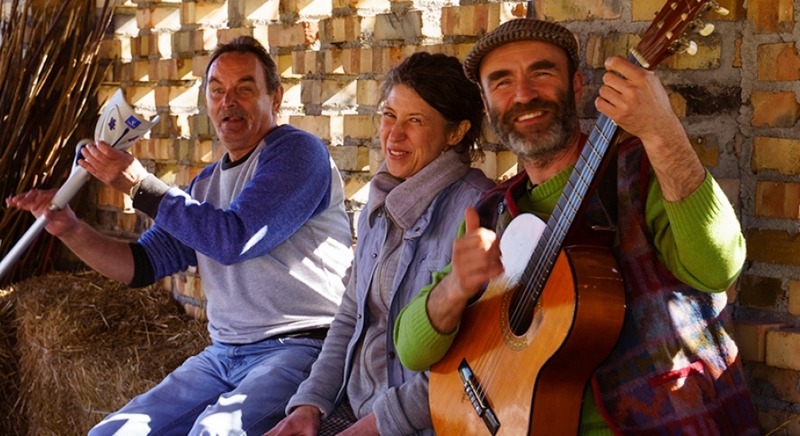Thessaloniki gets ready for its metro launch in November
The underground rapid transit lines have been under construction for almost two decades due to various project delays
 TheMayor.EU logo
TheMayor.EU logo 14 farms have been established with EU funding under the project
An innovative approach to social care in rural areas is being implemented in Kujawsko-Pomorskie region of Poland. A total of 14 Green Care Farms were established with the objective to encourage the elderly to stay active and engaged and help them out with loneliness and the related health problems.
The project, co-funded by the European Union, is implemented by the Kujawsko-Pomorskie Agricultural Advisory Centre (KPODR). It previews the engagement of a total of 225 local seniors and ensures local jobs and revenue.
 Some of the green care farm guests participating in the initiative. Photo: InvestEU
Some of the green care farm guests participating in the initiative. Photo: InvestEU
For the 2 million elderly who live in the rural areas of Poland, isolation, social exclusion and declining health usually go hand in hand. Fighting this situation is what the 14 farms spread across the Kujawsko-Pomorskie region have set themselves as a goal.
For this purpose, a number of seniors suffering from mental or physical illness and disabilities have been invited to spend some quality time in nature. Each of them is allowed to spend up to six months at a farm, accompanied by farmers, carers and family.
For half a year they undergo a programme of rehabilitation, aiming to keep them in good physical and mental shape and maintain their sense of social bond. What is more, the green care farms are an invaluable opportunity for the seniors to make new friends and foster the feeling of belonging to something big.
All farms participating in the project offer a different range of activities and depending on the interests and the predispositions of their guests and are customized by the caring personnel and a psychologist. This goes from purely farming activities like taking care of animals or gardening to gymnastics.
Finally, apart from the social function, the farms have important economic benefits. They create jobs in remote areas and provide qualifications for the farmers, their family members and staff. The qualification is given after up to 100 hours of intensive theoretical and practical training.
So far, this has resulted in 14 family members of farmers and 12 local community members getting a regular employment contract, after completing the course. Last but not least, the farm owner receives rent revenue for the project duration.
The project's activities are conducted between 2017 and 2020 (excluding the period of coronavirus lockdown, when the farms were temporarily closed). They have created a number of lasting memories for the participating seniors and hopefully – many more are yet to come.

The underground rapid transit lines have been under construction for almost two decades due to various project delays

Now you can get your wine in Talence by paying directly in Bitcoin

That’s because the state has to spend money on updating the railway infrastructure rather than subsidizing the cost of the popular pass

Rethinking renewable energy sources for the urban landscape

The examples, compiled by Beyond Fossil Fuels, can inform and inspire communities and entrepreneurs that still feel trepidation at the prospect of energy transition

Now you can get your wine in Talence by paying directly in Bitcoin

The 10th European Conference on Sustainable Cities and Towns (ESCT) sets the stage for stronger cooperation between the EU, national and local level to fast track Europe's transition to climate neutrality.

At least, that’s the promise made by the mayor of Paris, Anne Hidalgo

The underground rapid transit lines have been under construction for almost two decades due to various project delays

At least, that’s the promise made by the mayor of Paris, Anne Hidalgo

Hostal de Pinós is located in the geographical centre of the autonomous region

Despite its church-y name, the district has long been known as the hangout spot for the artsy crowds

Urban dwellers across the EU are having a say in making their surroundings friendlier to people and the environment.

Forests in the EU can help green the European construction industry and bolster a continent-wide push for architectural improvements.

Apply by 10 November and do your part for the transformation of European public spaces

An interview with the Mayor of a Polish city that seeks to reinvent itself

An interview with the newly elected ICLEI President and Mayor of Malmö

A conversation with the Mayor of Lisbon about the spirit and dimensions of innovation present in the Portuguese capital














